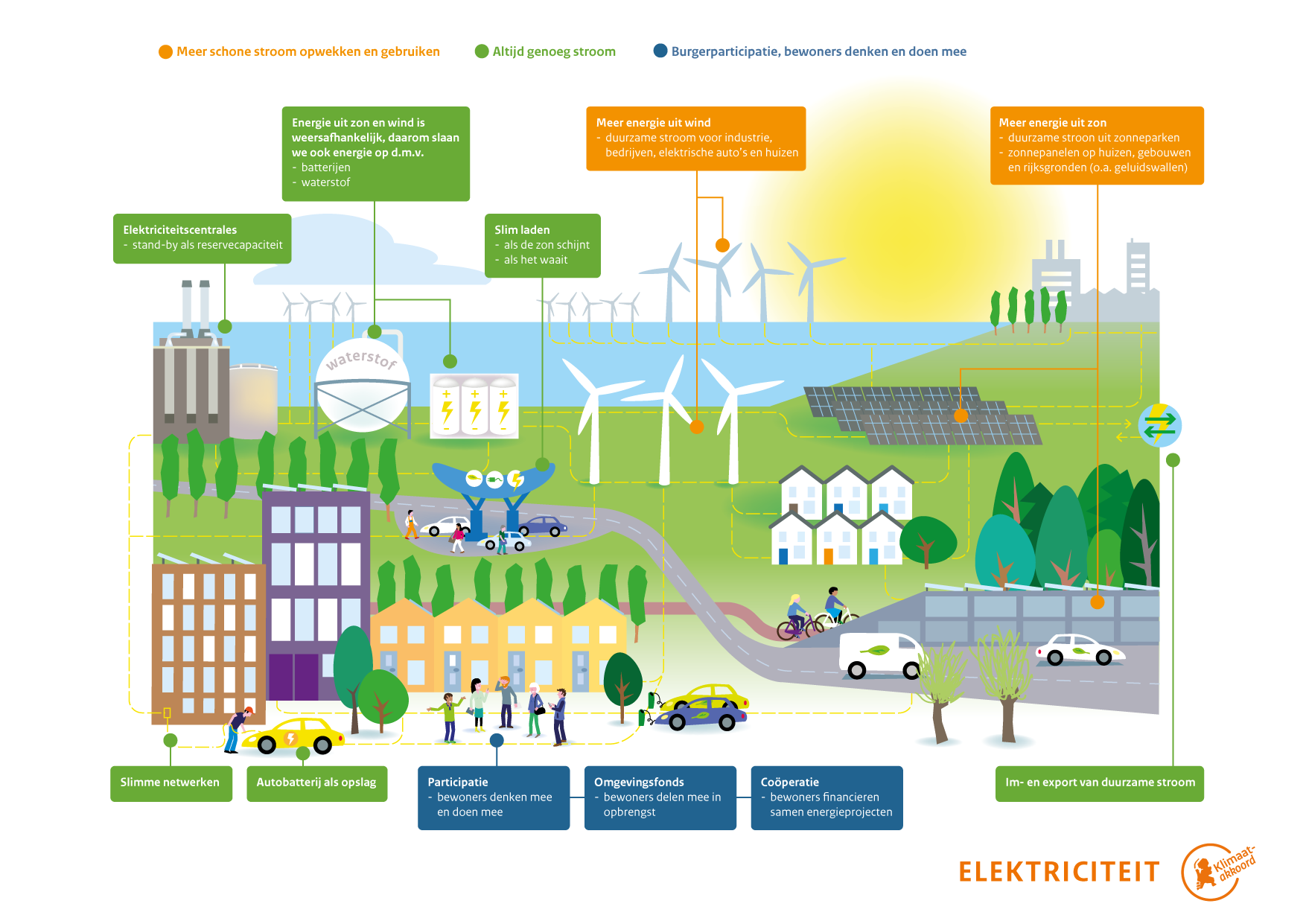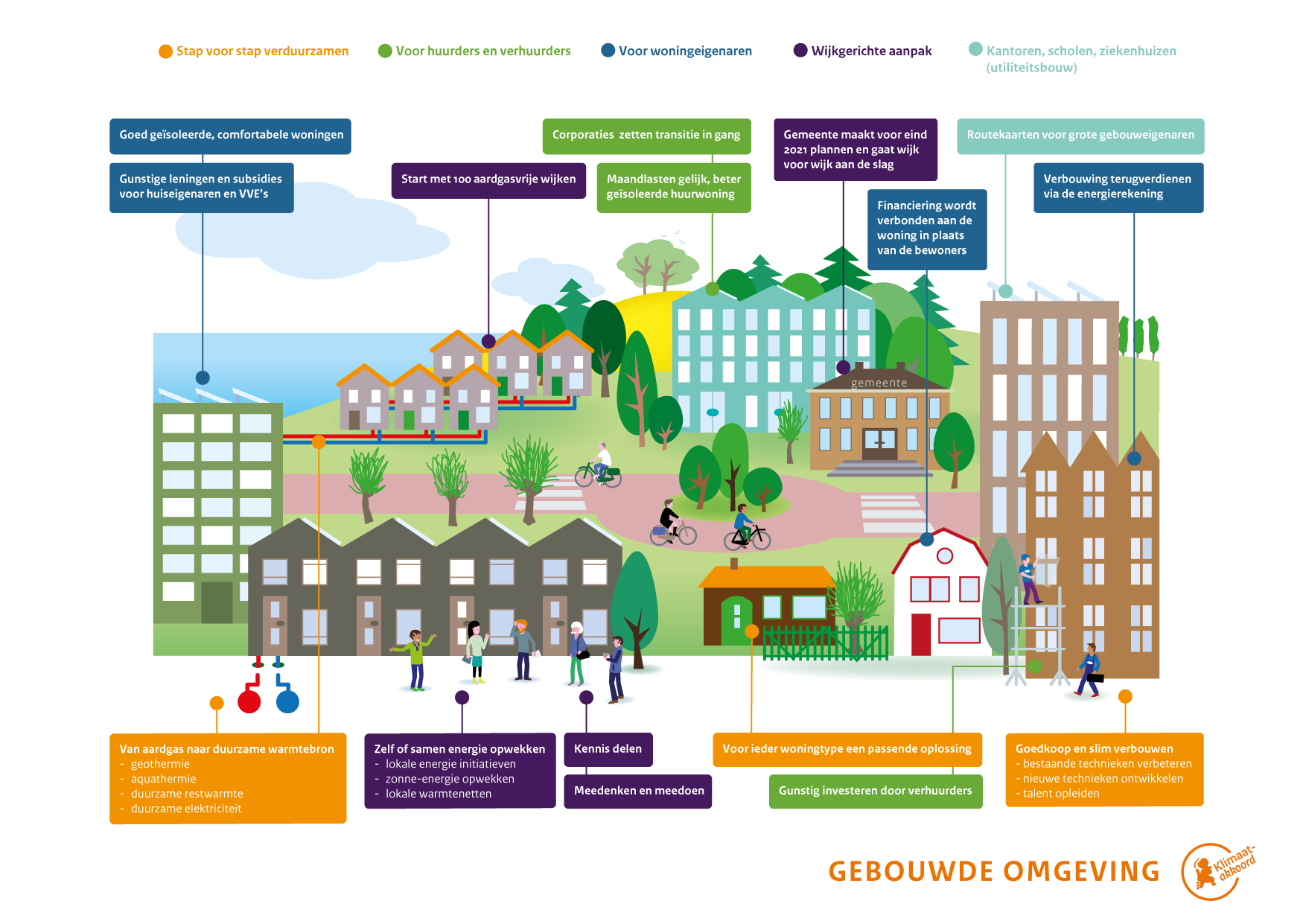Municipal & regional policies
Geldrop-Mierlo goes for a sustainable municipality
The City Council of Geldrop-Mierlo has adopted the Sustainability Program, which outlines how we will work with residents in the coming years (through 2026) to save energy, green our environment and reduce residual waste.
Saving energy together
The municipality cannot make Geldrop-Mierlo sustainable on its own, it needs the help of our inhabitants, entrepreneurs, associations and foundations. With volunteers from the Kerkakkers and Coevering areas we are Map the possibilities to make these neighborhoods natural gas-free. Together with the EnergieHuis Slim Wonen we educate people about sustainable measures such as insulation, solar panels and heat pumps. In cooperation with the LEVgroep we help people who have trouble paying their energy bills. If they wish, they can get a savings coach from the EnergieHuis Slim Wonen to visit them to look for savings opportunities, and we participate in the regional project "Green Zone Insulating", so that people with more limited borrowing capacity can also implement sustainability measures.
Greening together
In the coming years, we will also ensure that the greenery in our municipality is strengthened and that more greenery is added. In this way we will not only strengthen biodiversity, but also make our living environment more beautiful and healthy. The IVN can answer questions about plants for facade and tree-ledge gardens, and the municipality in turn helps the IVN to set up a seed library. By greening, we create shade spots and can store water better. In this way we ensure that Geldrop-Mierlo is equipped for the future and can cope well with periods of extreme heat and extreme rainfall. Buurkracht supports various neighborhood teams that carry out sustainable actions in the neighborhood, such as disconnecting rainwater from the sewer system to prevent flooding.
Waste
In the coming year, we want to further entice residents to take sustainable measures themselves and give them the tools to do so. In the coming years, for example, we want to limit residual waste to 75 kg per person per year. That seems little, but by giving residents tips and telling them that most waste does not belong in the gray bin, the goal becomes manageable. We also motivate people by telling them that sustainability is attractive for all households and that many small steps together can have a big impact.
Documents
Below you will find the Program on Sustainability with appendices and an easy-to-read infographic with some of the plans for 2023.
Regional Energy Strategy (RES).
In our municipality we are working with the other 20 municipalities in the Metropolitan Region, the province and the water boards on a Regional Energy Strategy (RES). With this we Map how and where we can save energy and generate sustainable energy in our region. It also states what possibilities there are for the sustainable heating of our homes. Because, the climate is changing. Fossil fuels are running out. The consequences of this on us and our living environment are becoming increasingly visible.
Already, rising temperatures are increasing droughts, storms and crop failures. We face increasingly extreme weather events, flooding from heavy showers and extremely hot summers. As temperatures rise, these problems increase and affect more people. We want to do something about that, together with you.
RES in a nutshell
In the Netherlands, 30 regions are creating their own strategy to contribute to the National Climate Agreement: an RES. The ultimate goal of the National Climate Agreement is to reduce CO2 emissions by 49 percent by 2030 and by 95 percent by 2050. This will require major changes in the way we generate and use our energy. A transition is needed from energy from fossil fuels such as gas, coal and oil to fully renewable energy such as solar and wind power. The so-called energy transition.
The goal of the National Climate Agreement stems from the commitments we made in the Netherlands in the 2015 Paris Climate Agreement. In this agreement, 192 countries agreed to limit global warming to two degrees compared to the pre-industrial era.
The RES is a proposal from each region to the national government on how the region contributes to a number of components of the National Climate Agreement: the generation of renewable electricity, energy conservation and the sustainable heating of buildings. In short, it is up to the regions to move forward with the energy transition in their area.
The time frame
Meanwhile, the draft RES for our region is ready. We see the draft RES as an intermediate step in the process, in which we as a region set the course. The further elaboration of the plans will take place in the next phase, to arrive at an RES 1.0. On the website of Metropolitan Region Eindhoven you will find the draft RES, the summary and the appendices.
In the coming months, all municipal councils will be consulted. The draft RES will also be shared with members of Provincial Councils and members of the General Boards of both water boards.
The government is asking regions to submit the administratively adopted draft RES by Oct. 1, 2020.
We will now get to work on the RES 1.0. The RES 1.0 must be submitted by July 1, 2021. Even after that, the process will continue: every 2 years there will be a reassessment of the RES. Then it will be assessed whether the goals and ambitions are still realistic and ambitious enough. Moreover, technological progress and lessons learned are expected to give us new insights. The RES leads to decision-making in environmental policy (environmental vision, environmental plans and environmental regulations).
Want to know more? Learn more about the National Climate Agreement here. Learn more about the 30 regions working on an RES here.

